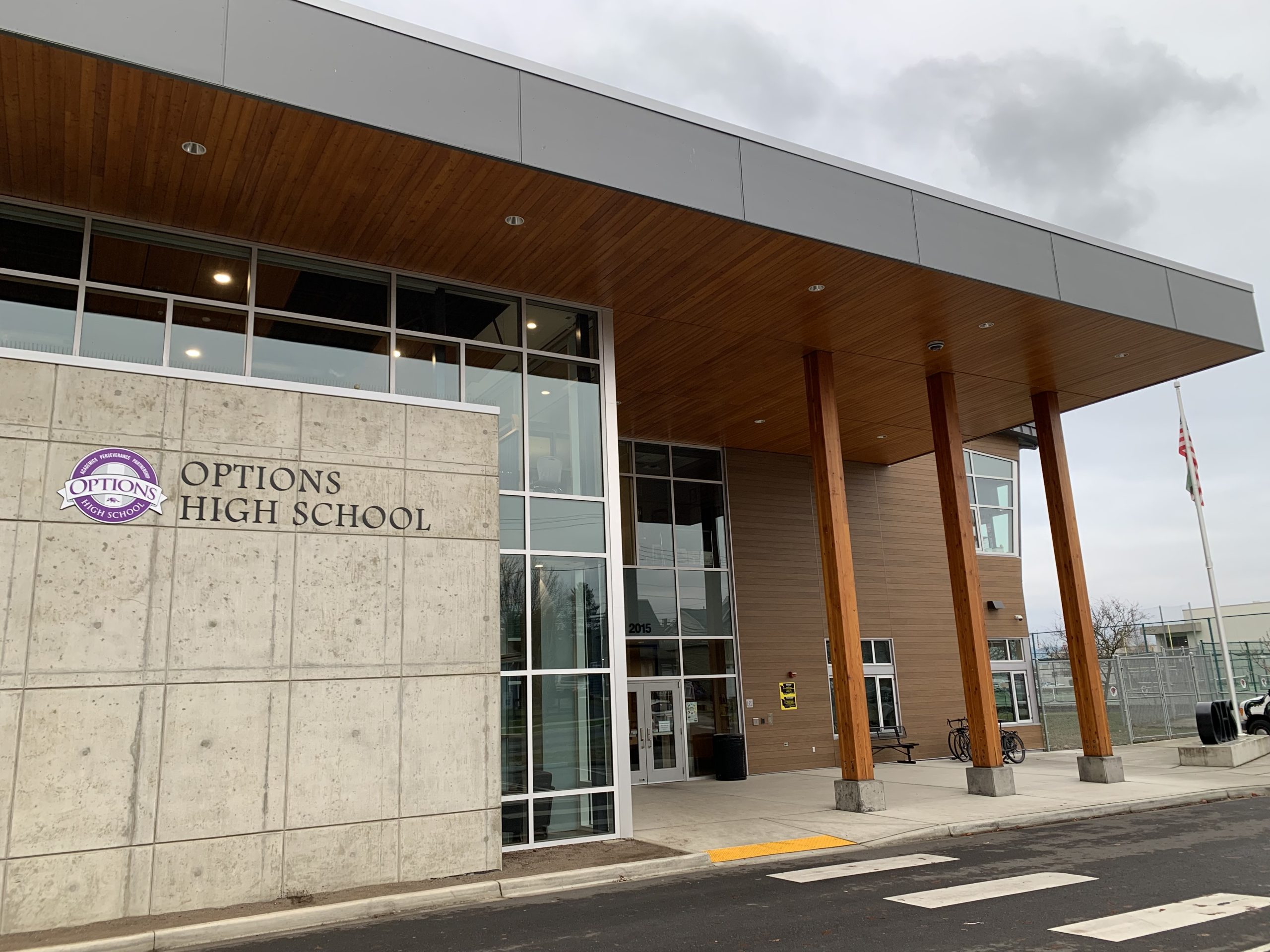
Fog, snow, rain, and partial sunshine all made an appearance in Joe Wooding’s AVID classroom at Options High School in Bellingham on a recent December afternoon. Students used weather patterns to describe their mental state that day, as they prepared for field trips and visits with college representatives later in the week.
Ready Washington visited the classroom to hear from students, who generously offered their perspectives about a variety of topics.
The students, who are all seniors, shared their aspirations for the future. Some have a clear sense of what’s next – from pursuing HVAC-R training at Bellingham Technical College (BTC) to completing a social justice degree at a four-year college – and some know they want to have a comfortable life doing a job they love and are still working out the details.
“I want to do things that make me feel proud of myself,” one student said, which likely will include starting education after high school at BTC before getting a job.
Another student said, “My goals for the future are to go to college and do the automotive technology program.”
Other students expressed wary interest in education after high school – along with concern about the cost.
As the students discussed their futures in a small group, one offered a summary of the considerations impacting students’ decision to attend education or training beyond high school: if it’s free or low cost, as I don’t want to go into debt while attempting to figure out what I’m doing with my life; if it’s worth my time and money; and if it relates to my desired career path.
A process that is intended to support students in making plans for their futures that fit their goals and interests, the High School and Beyond Plan, was another discussion topic during Ready Washington’s visit. Students expressed strong distaste and said that the process could be helpful but that its execution is often repetitive and not meaningful. They offered several suggestions for improving the experience:
- Vary the career quizzes that students take, so they don’t take the same one repeatedly.
- Offer more class time to work on it. Using the 20-minute advisory period is a good start, but it’s not enough time.
- Support teachers with more information so they are better equipped to answer students’ questions about the process and point them in the direction for more individualized help as needed.
- Provide more one-on-one support for students who need it to find paid, hands-on learning experiences.
The final topic the class discussed was issues students wanted adults who make decisions about the education system to understand. Many students shared that they want to be heard and taken seriously, and that students are individuals who need different support. Relationships between students and teachers are very important, and students said that learning goes better when they feel seen, respected, and understood.
Students expressed difficulty putting effort into classes that don’t feel relevant to their lives, and when they are missing basic needs – such as food or housing – which makes learning very challenging.
One student also suggested more field trips to experience different career paths and sectors outside of the classroom – a perfect segue to the class plan the following day, a visit to local Cornwall Park to get fresh air, and learn about native trees.
We hope you enjoyed learning more about these students’ thoughts about their future aspirations and perspectives about education and will incorporate them into your own work. Big thank you to Mr. Wooding and his students for taking time to talk with us!